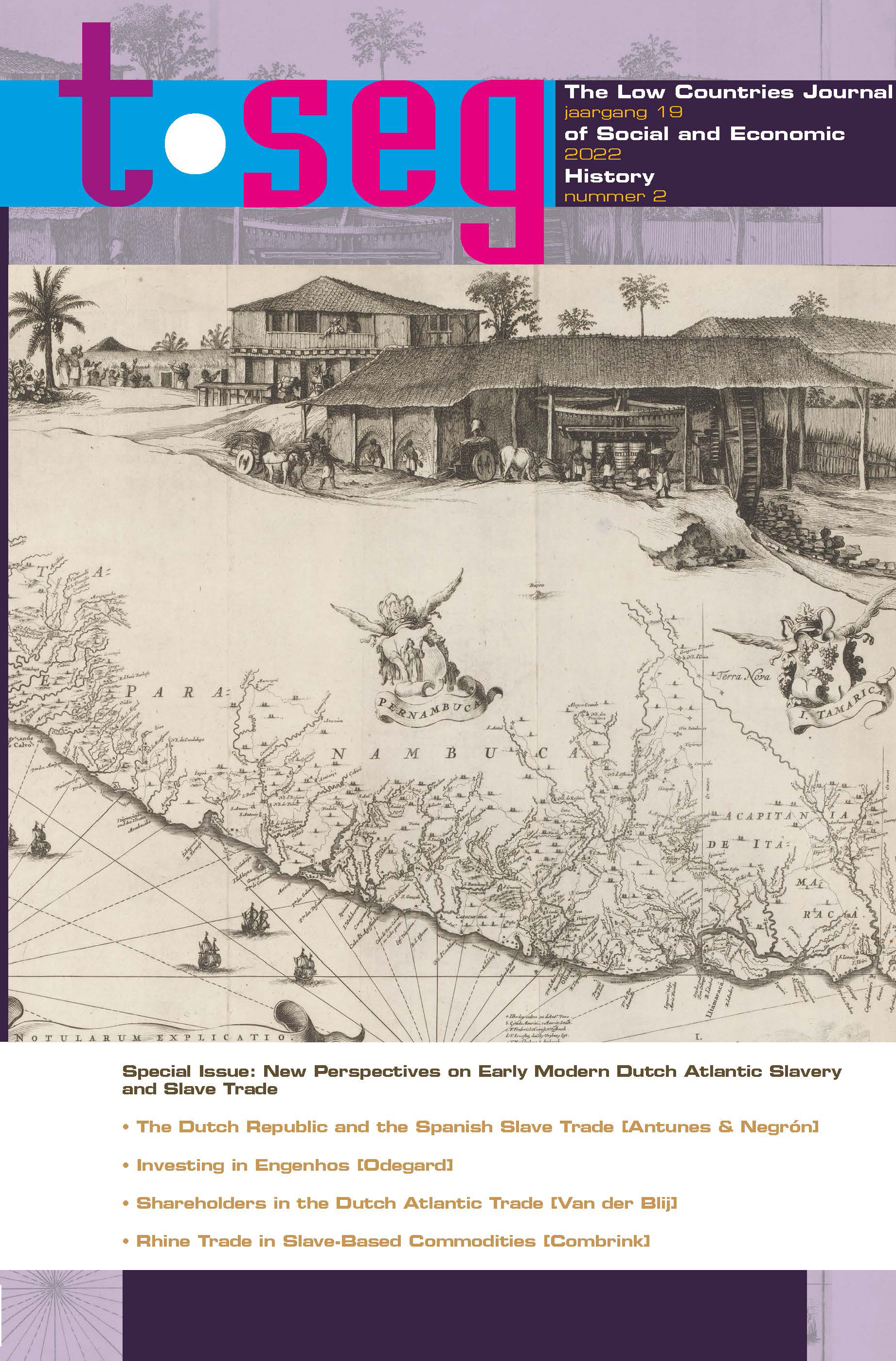Rhine Trade in Slave-Based Commodities in the Eighteenth Century
DOI:
https://doi.org/10.52024/tseg.12344Keywords:
River trade, Colonial commodities, Dutch Republic, Rhine, SlaveryAbstract
German states became an increasingly important destination for slave-based commodities over the course of the eighteenth century. The River Rhine served as an artery for the re-exports of sugar, coffee, tobacco, and other tropical items from the Dutch Republic to the German hinterland. Although some estimates about the importance of this trade do exist, these are based upon scant data. This article presents a plausible scenario of this trade based on a variety of sources. It finds that the Rhine trade grew rapidly during and in the decade after the Seven Years’ War (1756-1763), experienced sharp declines during the Fourth Anglo-Dutch War (1780-1784), after the Haitian Revolution (1793), and during the French Occupation – particularly under the Continental System (1806-1810) – to resume its steady growth in the nineteenth century. Moreover, much of this eighteenth-century growth was due to slave-produced commodities, which indicates that the Rhine became a crucial connection between the Caribbean plantation economies and globalizing German consumption patterns.
Downloads
Published
Issue
Section
License
Copyright (c) 2022 Tamira Combrink

This work is licensed under a Creative Commons Attribution 4.0 International License.






